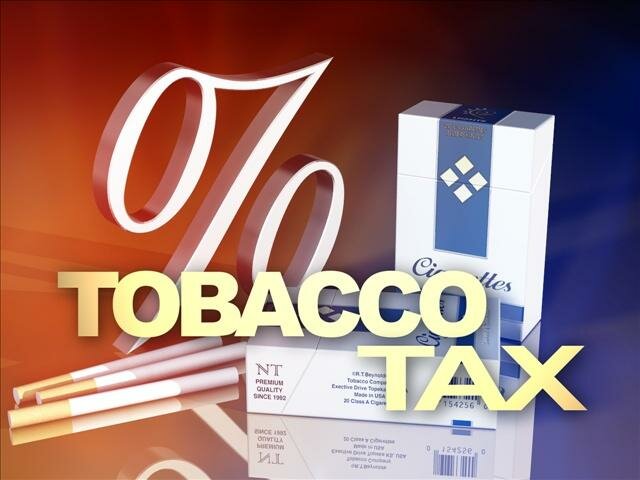Many U.S. citizens nowadays insist that tobacco products should completely disappear from our marketplace. They call tobacco companies “the merchants of death”, and rightfully so. As tobacco manufacturers now face a decline in sales, due to the fact that people know more about the hazards of cigarettes and therefore smoke less, these corporate monsters come up with new exquisite ways to boost their sales and further spread disease. One of the tricks is to hide nicotine in seemingly harmless products.
Recently held National Conference on Tobacco or Health in Minneapolis discussed this new strategy of tobacco producers. During the Conference, University of Minnesota tobacco researcher Dorothy Hasukami described to more than 3,000 national anti-tobacco activists and experts his findings of a whole array of new nicotine-containing products on the market.
The most dangerous of the new products is snus, also known as spitless tobacco – small packets containing nicotine which can be easily held in the mouth. Tobacco marketers promote this product as being less harmful for health and containing less carcinogens that traditional cigars and cigarettes yet producing the same powerful “high” for users since it contains the same amount of nicotine.
Another invention of tobacco companies is a nicotine-containing lozenge that can be placed under the tongue just like cough drops.
Hookahs, or water pipes, are also promoted now as a safer way to use tobacco than conventional smoking. Hookah smokers think that tobacco smoke drawn through water is “cleaner”. However, the Conference experts successfully challenged this point of view by presenting evidence that tobacco used in hookahs actually is more dangerous because it contains more tar and more nicotine than tobacco used in cigarettes.
One more ?great? marketing idea of tobacco producers is to make small flavoured cigars, such as the Swishier or Winchester, and sell them to naive consumers who think that they are getting a “healthier” product. In 2006 alone, more than 4.5 billion of such cigars were sold in the U.S.
In view of the above, many anti-tobacco activists are wondering why tobacco giants, such as Philip Morris, are still allowed to sell their deadly stuff to U.S. consumers and make big profits. Tobacco products should be regarded as venom, which they are, and should be made illegal, just like contaminated food, opium, crystal meth, and other dangerous drugs and poisons.
According to the American Cancer Society, tobacco death toll accounts at 430,000 death cases a year, yet tobacco industry is still a highly profitable business in the country. Although a whole range of measures have been implemented in the recent decades to reduce smoking, such as information campaigns educating the U.S. population about hazards of tobacco, or laws prohibiting smoking in restaurants, offices, and other public areas, these measures are not sufficient enough. Tobacco companies are still thriving, and even major lawsuits against them have not diminished their profits.
Some U.S, citizens, including the participants of the Conference, proposed to take more drastic measures against tobacco corporations. Among the proposed steps are the following:
1. To impose a high tax on cigarettes, cigars, snus, and other tobacco products. Profits from the increased taxation should be directed to treat tobacco-related diseases. In addition, higher prices should further encourage consumers to quit smoking.
2. To introduce a law obliging tobacco producers to gradually decrease the amount of nicotine in their products.
3. After a ten-year period, to require tobacco corporations to stop producing tobacco-containing products.
Although such proposed measures seem to be fair, their opponents argue that increased tobacco taxation will have a very bad impact on poor and lower-middle-class Americans – the categories of the population that smoke the most. Other say that such drastic measures will be against America’s deeply cherished values of “personal freedom”. In addition, tobacco products cannot be made illegal because governmental officials signed solid contracts with tobacco corporations in exchange for the billions of dollars that tobacco producers pump into the U.S. economy?
 November 22, 2017 – from the National Assembly of the Republic of Bulgaria – changes in the tobacco taxes.Cigarettes longer than eight centimeters, without the filter, will be subject to double excise duty. This is stipulated with the amendments passed on second reading to the Excise Duty and Tax Warehouse Act. The excise duty for each cigarette longer than eight centimeters, without the filter and mouthpiece, but less than 11 cm will equal the one for two cigarettes. Currently this has applied to cigarettes longer than 9 cm up to 18 cm.
November 22, 2017 – from the National Assembly of the Republic of Bulgaria – changes in the tobacco taxes.Cigarettes longer than eight centimeters, without the filter, will be subject to double excise duty. This is stipulated with the amendments passed on second reading to the Excise Duty and Tax Warehouse Act. The excise duty for each cigarette longer than eight centimeters, without the filter and mouthpiece, but less than 11 cm will equal the one for two cigarettes. Currently this has applied to cigarettes longer than 9 cm up to 18 cm.